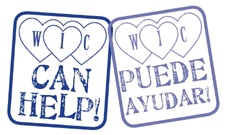
Domestic/Intimate Partner Violence
 Domestic/intimate partner violence (IPV) is a pervasive problem in virtually all countries, cultures, classes and income groups. It is a complex and multifaceted problem with individual solutions that are appropriate for different women in different socio-cultural contexts.
Domestic/intimate partner violence (IPV) is a pervasive problem in virtually all countries, cultures, classes and income groups. It is a complex and multifaceted problem with individual solutions that are appropriate for different women in different socio-cultural contexts.
NEW! According to the National Resource Center on Domestic Violence, women who have experienced IPV are twice as likely to experience depression, almost twice as likely to abuse alcohol, and 16 percent more likely to have a low-birthweight baby. Intimate partner or domestic partner violence doesn’t just affect adults, it affects children too. The U.S. Department of Health and Human Services, Office on Women’s Health shared that young children who witness IPV exhibit behaviors they acted out when they were younger, like bed-wetting, thumb-sucking, increased crying, and whining. They may also develop difficulty falling or staying asleep; show signs of terror, such as stuttering or hiding; and show signs of severe separation anxiety. Additionally, children who witness abuse are at higher risk for health problems as adults. These can include mental health conditions, such as depression and anxiety. They may also include diabetes, obesity, heart disease, poor self-esteem, and other problems.
What Local Agencies Can Do:
1. Realize that, as a trusted source of reliable information, WIC Can Help end the cycle of domestic violence.
2. Become familiar with and use the resources below to ensure families get the help they need.
3. Find out how your organization can help change community conditions to heal and prevent IPV, using the 2017 report, A Health Equity and Multisector Approach to Preventing Domestic Violence: Toward Community Environments that Support Safe Relationships in California as a resource.
NEW! Safety Alert: Computer use can be monitored and is impossible to completely clear. If you are afraid your internet usage might be monitored, call the National Domestic Violence Hotline at 1−800−799−7233 or TTY 1−800−787−3224. Users of web browser Microsoft Edge will be redirected to Google when clicking the “X” or “Escape” button.
Resources
National Domestic Violence Hotline
Phone hotline 24 hours a day, 7 days a week in more than 170 languages, providing safety planning, crisis help, and connections to local shelters and services:
800-799-SAFE (7233)
800-787-3224 (TTY)
LoveIsRespect.org offers real-time, one-on-one support for healthy teen relationships from peer advocates, including:
Round-the-clock phone help at 866-331-9474 or 866-331-8453 (TTY)
Live online chat (5 PM – 3 AM EST)
Text: “loveis” to 22522
County Mental Health Departments in California:
Crisis Intervention: 800-318-8212
Access/Service Referral: 800-318-8212 or 530-694-1816
Network of Care – search by state & county under Mental Health/Behavioral Health
Violence Against Women (USDHHS information page for women)
CDC Fact Sheets for the public:
California Partnership to End Domestic Violence
National Online Resource Center on Violence Against Women
- NEW! Men can be victims of domestic/intimate partner violence as well. The following are resources that can be used for fathers and male partners: Help For Men Who Are Being Abused, and Male Survivor.
- NEW! Same sex couples also experience IPV at similar or higher rates than the general population. Common Myths About LGBTQ Domestic Violence, will provide more information and LGBTQ-friendly resources.
